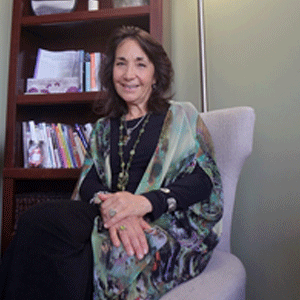 The image of physical perfection is becoming more and more stressed by the media. That, coupled with the all-to-real frailties of the human condition, results in more and more people taking it upon themselves in an attempt to emulate perfection—often with disastrous results.
The image of physical perfection is becoming more and more stressed by the media. That, coupled with the all-to-real frailties of the human condition, results in more and more people taking it upon themselves in an attempt to emulate perfection—often with disastrous results.
Eating Disorder Treatment Collaborative has called its Syosset-based headquarters located at 366 North Broadway home for just over a year. They had previously been based out of other locales as they’ve gown over the past 15 years, including Bellmore and Merrick. In addition, the center also has additional offices in Hauppauge and Manhattan.
The center runs a wealth of nutritional programs aimed at wide variety of different individuals from any age group, ranging from athletes to people just wishing to improve their overall wellness. However, the main aspect of the center is providing treatment for those who have developed an eating disorder, according to Sondra Kronberg, Center Founder and Nutritional Director.
“I train and supervise nutritionists, psychotherapists and physicians in how to treat eating disorders. I’ve also taught at C.W. Post, in addition to other universities and in workshops around the country as well,” she said. “When I started out in this field 30 years ago, I first came out of school thinking that I knew all there was about food, but I learned that there was so much more to what and why people eat. I realized that there were very few people who knew what to do with people suffering with eating disorders. I did a lot of work in that area, and that’s what I’ve focused on for the past 30 years.”
 Kronberg, who holds a Masters Degree in Medical Nutrition, decries the fact that people are under more pressure from the media than ever to look a certain way. Even if that idealized look is almost completely unobtainable by the average human being. The constant obsessive striving to achieve physical perfection—or, in reverse, binge eating and its subsequent obesity—are all coming from the same source, she said.
Kronberg, who holds a Masters Degree in Medical Nutrition, decries the fact that people are under more pressure from the media than ever to look a certain way. Even if that idealized look is almost completely unobtainable by the average human being. The constant obsessive striving to achieve physical perfection—or, in reverse, binge eating and its subsequent obesity—are all coming from the same source, she said.
“What I learned early on was that I could give people information, but that wouldn’t address the underlying emotional, behavioral and genetic reasons why people are predisposed to developing eating disorders. Emotionally using food to regulate their sense of self,” she said. “Most people can follow a good eating plan for a week or two, but then their emotional relationship with food would eventually get in the way, and then they would do things with food that were self-destructive. I had to find a way to figure out what was going on with a person emotionally that disrupts their ability to take better care of themselves.”
Eating disorders, whether they involve binge eating, purging, or compulsive dieting and exercising, are indeed a form of psychological illness, Kronberg said, and they resonate around the amount of torment, guilt and shame each individual has inside.
“This creates a sense of self loathing,” she said. “This can affect your happiness, your socialization, and if severe enough, it can be fatal. This is the psychological illness with the highest mortality rate.”
Treatment options at the Eating Disorder Treatment Collaborative—whose office is designed with an almost new-age, soothing aesthetic, complete with comfortable chairs, sound machines and gentle music—follow a whole gamut of approaches, from physical to emotional, in an attempt to get to the root of the problem, Kronberg said.
“An eating disorder is different from drug or alcohol addiction, because those you can just stop…but you can never stop eating, so we need to explore your relationship with eating,” she said. “With this program, there are three aspects of we approach; the physical, the emotional and the behavioral. Here we work in a collaborative way on what’s going on emotionally, how to maintain physical needs and how to create both to create healthy behaviors. There’s usually a nutritionist and a therapist working with any client, and we have varying degrees and frequency of care based on how severe a client’s issues are.”
Kronberg notes that eating disorders are among the more difficult to overcome. The relapse rate tends to be rather high if a client doesn’t stick with their treatment, she said. But with help, support and perseverance, anyone can ultimately overcome their self-destructive urges and continue on to happy and healthy lifestyle. That ultimate triumph, she said, is what makes her job worth all the effort.
“We’re going to help you see why you’re having difficulty, and you can come here, go through therapy, and then eat a meal with us, so that we’re not just telling you the right way to eat, but showing you as well,” she said. “I love what I do, and what I love most about it is that I get to work with a group of people who are usually very sensitive and creative, and when you can help them refocus and reclaim themselves, it’s a huge gift to both them and me.”
To find out more about the Eating Disorder Treatment Collaborative, visit their website at www.eatingdisordertreatmentspecialists.com.


































